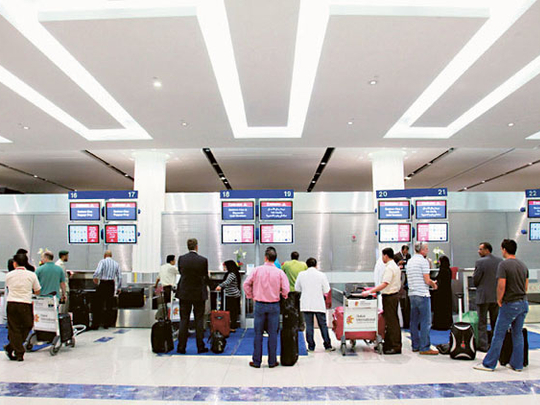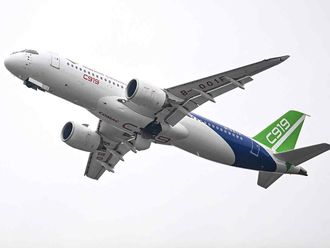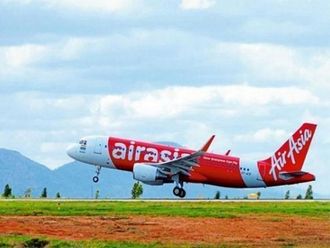
Paris A top Emirates executive has delivered a warning to Europe's struggling airlines that they could lose more business to booming Middle East carriers as they pay the price of years of political neglect.
Thierry Antinori, who walked away from the top job at Austrian Airlines to join the largest Arab carrier last year, said airlines such as Emirates were well placed to continue expanding while some rivals lurched into a downward spiral of investment.
"I think with our geographical position and the quality of products and networks we are offering, there is clearly an opportunity for the Middle East airlines to strengthen their position on the global industry map," he told Reuters.
"I even consider the next years as an opportunity for Emirates to increase the gap with some of our competitors, because we are just looking at what the customer wants."
The Frenchman dismissed the possibility that Emirates would step in to bail out or buy European airlines and repeated its reluctance to join one of the major alliances.
In December, Etihad Airways took a stake of almost 30 of Germany's airberlin. There are also reports that Etihad is interested in holding talks with the Irish government over the sale of its 25 per cent stake in Aer Lingus.
"We prefer to rely on our product, so we prefer to buy airplanes than airlines," the Emirates official said.
"We do not lose time in discussion with alliances, which are not very clear for the customer to understand. They say ‘we offer you seamless travel' but in the end they offer seamless trouble," said Antinori, who joined Emirates as Executive Vice-President, Passenger Sales Worldwide, in September.
Blunt assessment
Antinori's decision to defect from Lufthansa came days before he was due to become chief executive of loss-making Austrian and took the industry by surprise.
Six months later, he has a blunt assessment of the malaise gripping European airlines, half a dozen of which have gone bankrupt this year.
"Aviation was made a strategic industry in Dubai 20 years ago. In Europe it is not strategic and it is not important for politicians to win elections. That is why airline lobbying is not heard, investments are blocked, taxes are increasing and as a result airlines do not have modern fleets and then they save money on products."
Recent aircraft improvements have put most of the world's population within a direct flight from the Gulf, resulting in airport and fleet expansion and shifting more of the global network map to large hubs such as Dubai from the US and Europe.
"You cannot stop the Middle East airlines because they are in the centre of the world; they have the best infrastructure... and never save money on product," Antinori said.
"That is the big difference with Europe [where] there is no strategy, and because of that they reduce the quality and the infrastructure, and the fleets become older."
Tough battles
The critique of European aviation policy comes as the industry faces tough battles over airport expansion in the UK or a new system of European Union charges for jet emissions — two issues that also affect airlines in the Gulf and elsewhere.
Emirates: One more flight to Rome
Emirates said it will boost its operations in Italy this October as the airline adds a third daily flight to Rome. This will take the total number of flights offered to Italy to 56 a week.
Starting October 1, EK099 will leave Dubai at 3.15am and will arrive in Rome's Leonardo da Vinci airport at 7.35am. The return flight, EK100, departs Rome at 11.20am and arrives in Dubai at 7.10pm. The new service will be operated by a 237-seater Airbus A330-200 in a three-class configuration that offers 12 first class seats, 42 seats in business class and generous space for 183 passengers in economy class. The aircraft also will add a total of 15 tonnes of cargo-carrying capacity to the route.
— Staff report












